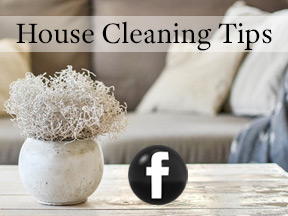How to Organize the Basement

Basements Don’t Have to Be A Scary Place.
Declutter and Organizing the Basement
There are many of us that think of basements as a dark and dank space. A place where the ceilings are low, the space is cold, the furnace ominously cranks away, a damp space, cracked cement floors, and a place where furniture and boxes are stored. Creepy, right? But it doesn’t have to be! With the right approach to organizing the basement, you can turn this often overlooked area into a functional, tidy space that works for storage and more. Say goodbye to the cluttered, spooky basement and hello to a well-organized, useful space.
This is my childhood memory of the basement in the house I lived in as a child and of my grandparents’ house. Maybe your basement is finished and no longer scary (like spooky scary when you were a kid). Maybe it’s an unfinished basement? It doesn’t really matter what you have if you can’t see the floors and enjoy the extra space with the family.
With some organization, your basement area can become functional and turned into a usable, family friendly space, instead of a catchall for junk and clutter.
Organizing the Basement – Inventory the Contents
When you have decided you need to get your basement space under control, one of the first steps is taking an inventory of the contents. Bring a pencil and some paper so you can make notes. Notes like:
- What family members or friends you need to call so they can come claim their stuff and take care of it as they see fit. Not your problem after all, right!
- Calling for donation pick up or if you will need to borrow a truck to drop stuff at a donation center.
- Should you invest in a shed to hold chemicals, gardening supplies, old car parts?
- Will you have the room to build a storage area in the basement to store the items you keep?
- A list of storage containers you need. Garbage bags, etc. Buy storage containers that are water tight and have good seals to keep out other things like bugs.
- Vacuum cleaner, mop and bucket, dusters and so on.
It’s also important when you get to a point in the decluttering and organizing process that before you build anything and put things back, you inspect for damage – water leaks, mold and mildew and make sure you have no unwanted guests (excuse me I meant pests) in the house. You can also hire a professional to inspect the space and fix anything you find first.
Sorting Through the Contents of the Basement
It’s really silly to keep things that you are never going to use. It’s even sillier to keep things that you’re never even going to see because they are in a box in the basement. Sorting through the contents of your basement might be like Christmas for some of you. You may find some treasures down in the deep you completely forgot you had.
When sorting through the contents of the basement, have piles that go to:
- Family and friends!
- Things that can be donated.
- Junk pile.
- The – Can I make money from this pile, pile?
- The keeper pile.
Family and Friends – Come get your Stuff!
Reclaim your space! Come and have them remove their stuff. Give them a date you want the items gone by. There’s no reason you should have to do their work.
And don’t feel guilty, think of how nice it will be when all this organizing is done and you can use the space for a family room, a place to do crafts, whatever you find a need for.
Donate or get rid of Unwanted Goods
For the items you find you won’t be keeping and/or are gently used, there are a couple of options you can take.
Call for Pick Up
There are places such in your area that will come to you and pick up your goods. Just call, leave your items on the curb, and they collect.
Drop Off Your Donations
You can also drop off your donations to thrift stores and the like. Just remember if you don’t want something because it’s super old and tattered, rusty, or falling apart – chances are the place you donate to won’t want it either.
Taking Stuff to the Dump
If you have some rusty items or furniture that has seen better days, don’t donate them, give them a ride to the dump or toss them in the garbage if allowable.
If you don’t have a vehicle to haul stuff in, see if you can borrow one from a family member or friend.
Taking stuff to the dump isn’t too expensive and they typically have places where you can drop off old batteries, old computers, ink cartridges, and more.
Throwing out the Trash
Make sure you have plenty of garbage bags on hand to toss the trash. These can go with you to the dump or if you didn’t have this done at the time, put it out on the curb for garbage pick-up.
Can you Make Money on Your Junk?
You know the old saying, “One man’s junk, is another man’s treasure.” If you have items you think are in good enough condition to make money on, keep them and try selling stuff before taking to a donation facility.
You could have a garage sale or try selling on places like eBay, craigslist, Offer Up or Amazon.
Storing and Organizing the Things you Keep
If you have a large basement and have the room – think about the possibility of building a storage room or an area where you can safely store the items you keep, a place with a door.
If you don’t have room to build a space for storage, you should at least have a clear divider between the storage area and any family areas. Shelving, partitions or screens work well to create rooms within your basement. Whatever you decide on, try to keep items off the floor, make use of modular shelves, pegboards, baskets, and hooks or pegs.
Putting Away Your Treasured Items
Use waterproof, well-sealed containers for valuables and treasured family memorabilia. Use paper towels, newspaper, packing papers, and packing peanuts to store items safely so they don’t break or get damaged.
Have a section for like containers. Seasonal decorations should go together by season. Nostalgia items (wedding gowns, old slides, school papers) should go in one section, usually the least accessible as these items aren’t taken out very often. Make sure that any wall shelving is secure, and never stack things too high for your safety.
Important Papers Should be Kept in a Safe
Never keep important documents in a regular plastic container in the basement. Crucial documents that can’t be replaced or that will be necessary in an emergency should be kept in a fireproof, waterproof safe on the main level of the house.
Don’t Use Cardboard Boxes
Whatever you do, don’t use cardboard boxes. It’s pretty much useless if a flood were to happen. Not to mention, little critters can chew right through and they can mold and get mildew causing damage to the contents of the box.
Chemicals and Other Supplies
Chemicals, paints, gardening supplies, car parts and what nots, really shouldn’t be stored in the house, especially if you have kids and pets around. If you have a shed, put them out there. If you don’t have a shed but have the room, get one, you’ll love it.
Label the Containers
When you label your containers, label them so you can see and read it from where you are standing. Don’t label the top of a container if you are stacking them. It’s pointless; you won’t be able to read what’s on the label.
Label both sides of a container so you don’t have to remember to put it in a certain direction. Be specific when you label. Don’t just say, “Christmas Decorations.” Say, “Christmas tree skirt, lights, and ornaments.” You want to be able to find exactly what you’re looking for by only opening one container.
Final Thoughts on Organizing the Basement
Once you are happy with your basement organizing project, promise yourself to collect one trash bag you’re willing to part with and one box of items to sell or donate every year.
Choose a month to go through containers or just keep a trash can and box on one of the shelves to fill throughout the year. The only way your basement will stay organized is to minimize the amount of items coming into or staying in the basement.



